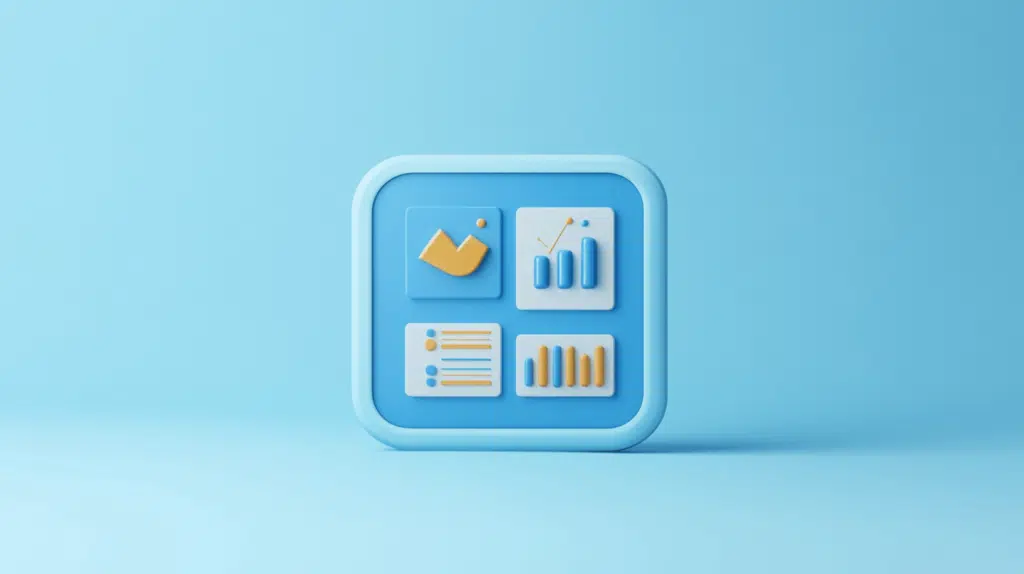Last Updated on October 23, 2024
Can’t find the option to share the dashboard?
In this guide, let’s talk about the possibility of sharing a Power BI dashboard with SharePoint Online.
Let’s get started.
Table of Contents:
Unfortunately, You Can’t
There’s a reason why you can’t find the button to “embed” or “publish” the dashboard.
That’s because you can’t “directly” publish a Power BI dashboard to SharePoint pages as only reports are supported.
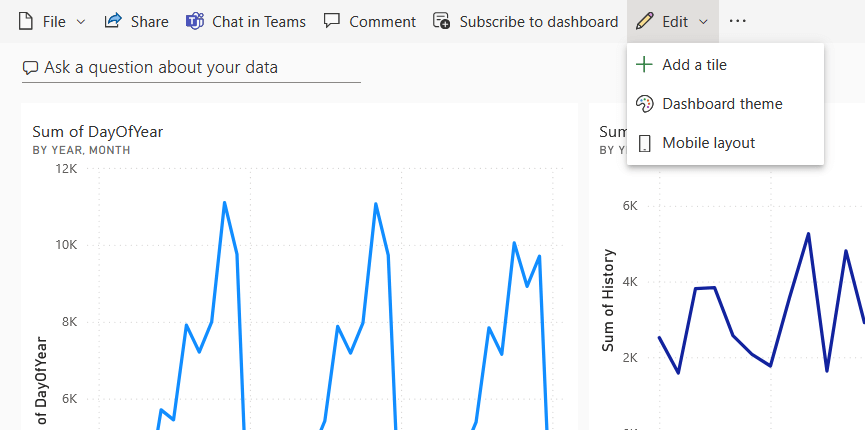
Here are some key points:
- SharePoint pages only allow embedding Power BI reports
- You can recreate your dashboard as a report instead
- Recreating the dashboard on a report page keeps your visuals
While this might seem like a limitation, it’s not a dealbreaker.
You can mimic your dashboard within a report by placing the same visuals and layouts on a single report page.
This way, you can still deliver the insights you need while staying within SharePoint’s publishing framework.
Sign up for exclusive updates, tips, and strategies
Power BI Dashboard vs Report
Before we proceed, let’s brush up on how a dashboard and a report differ.
Here’s a quick comparison:
- Dashboard: A single page with visuals from multiple reports or datasets.
- Report: Multiple pages of detailed data visualizations from a single dataset.
- Dashboard: Interactive but limited in detail compared to reports.
- Report: Allows deep data exploration and detailed insights across many pages.
- Dashboard: Used for a quick overview of key metrics.
- Report: Best for detailed analysis with multiple visualizations.
Dashboards are great for monitoring data at a glance, while reports provide a deeper dive into the data.
If you need both broad overviews and detailed data insights, combining dashboards and reports is a good approach.
Just remember that SharePoint only supports embedding reports, not dashboards. 😅
👉 Related: What is a Power BI Dashboard (Power BI Dashboard Tutorial)
Dashboards seem more like a personal screen regarding data.
All the visualizations on a dashboard came from a report, so you can technically recreate it on a report page.
Step 1: Create another page
To recreate your dashboard in a report, start by adding a new page to your existing report.
Look at the bottom of the page and you should be able to see the + button to add a new page:

You can then choose to rename that page to match your dashboard for easy identification.
I’m renaming it as “Dashboard” for now (you can double-click on the page name to rename it).
Step 2: Recreate your dashboard
Now that you’ve created a new report page, it’s time to rebuild your dashboard on it.
Here’s my tip:
Since the visualizations on the dashboard came from the report, just copy and paste from the report:
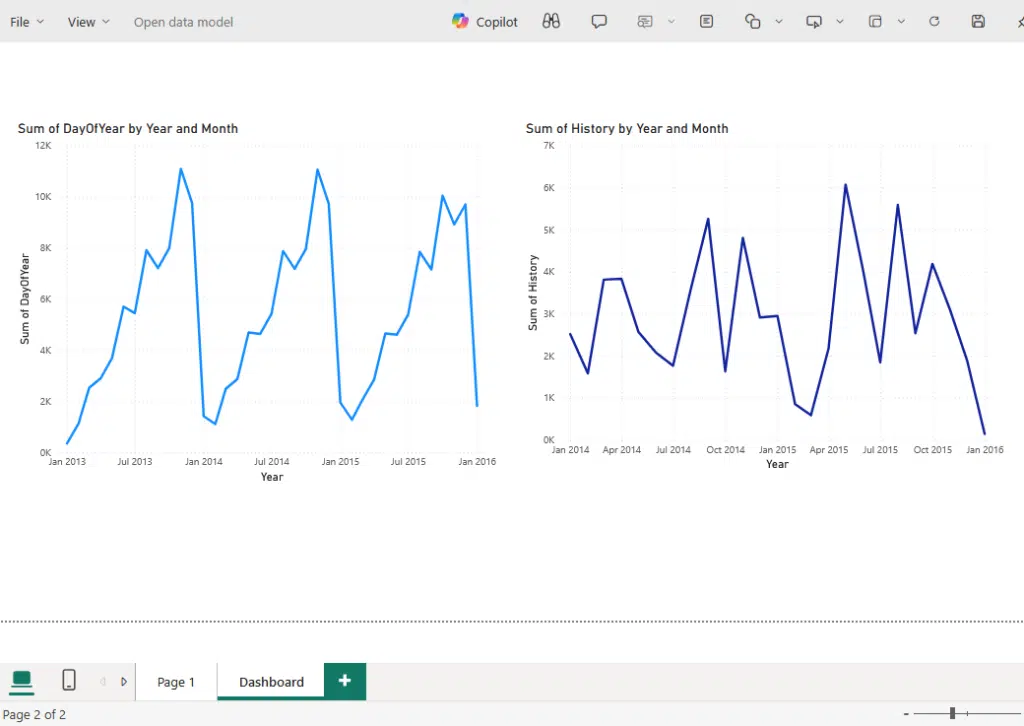
You can’t copy from the dashboard since as soon as you click on a visualization, you will be redirected to the report. 😅
Recreating your dashboard on a report page means you will still have all the insights, now accessible within a report format.
Step 3: Embed the report to the page
Once your report is ready, it’s time to embed it into your SharePoint page.
You have two options:
- From SharePoint
- From Power BI
When editing a SharePoint page, you can add the Power BI web part:
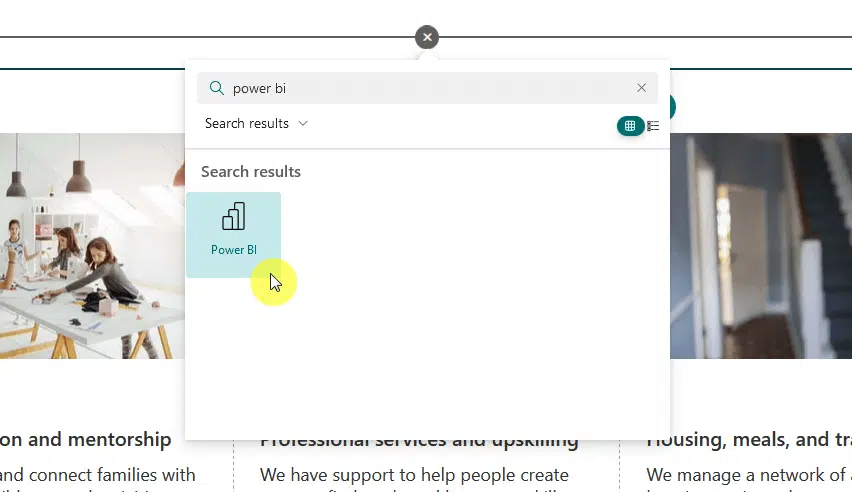
Its properties will allow you to add the Power BI report link, specify the page name, and configure some settings.
It looks like this:
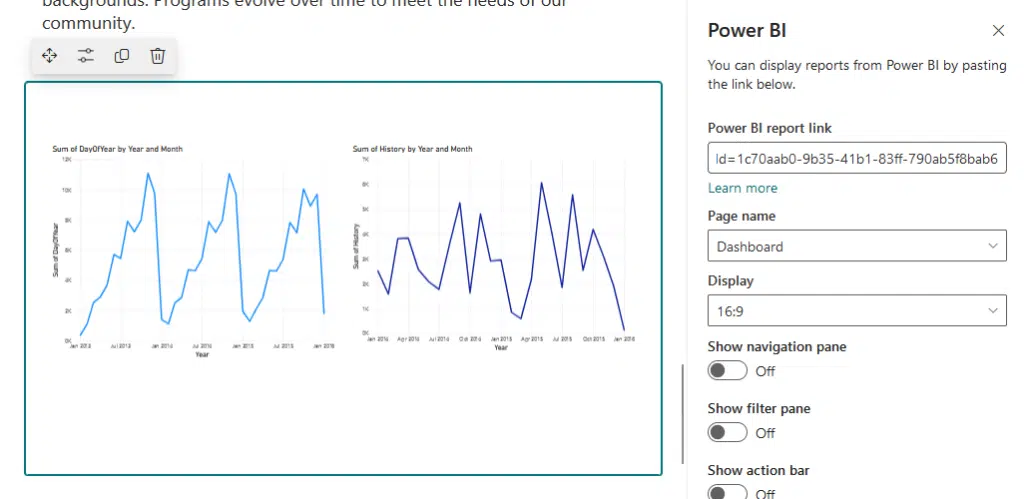
For the Power BI report link, you will have to go back to the Power BI report itself and find the option to embed the report.
If you’re not editing, it’s found on file > embed report > SharePoint Online:
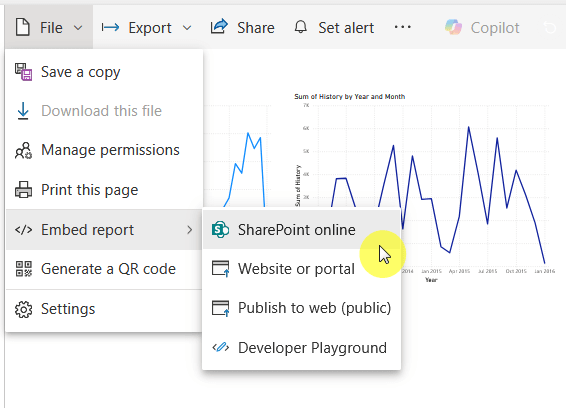
If you’re editing the report, you will see the “Embed in SharePoint Online” option after opening the file tab.
Both will open a modal with the embed link for SharePoint, which you need to paste into the report field in SharePoint.
Nice! 🙂
Limitations and Considerations
While embedding Power BI reports in SharePoint is useful, there are some limitations to keep in mind.
Here’s what to consider:
- Users need a Power BI Pro or Premium license to view embedded reports.
- Large reports or datasets can cause slow loading times on SharePoint pages.
- The embedded report may not be as customizable as a native SharePoint app.
- Be cautious with public embed options as they expose data to a wider audience.
Do you have any questions about publishing from Power BI to SharePoint Online? Let me know below.
For any business-related queries or concerns, contact me through the contact form. I always reply. 🙂

